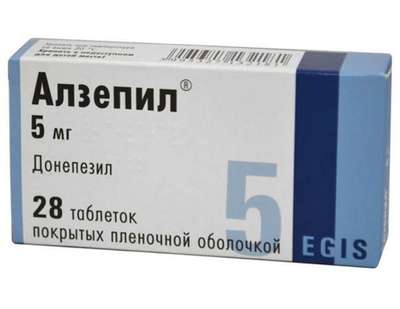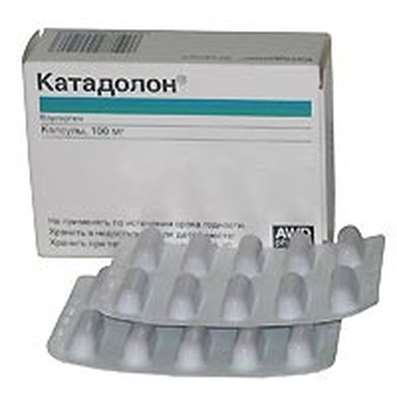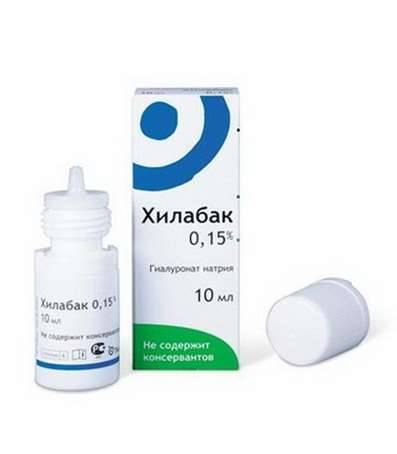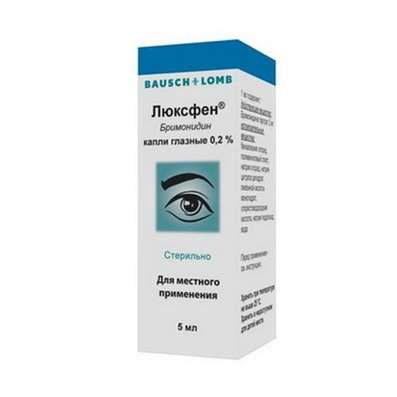Serotonin
25 Oct 2016
Physiologist Dr. Doping talks about the conversion of tryptophan, serotonin neurochemistry and action of antidepressants.
Serotonin - a molecule that performs in our body a lot of options: both mediates central nervous system, as well as what is called a tissue hormone that is on the periphery, in a variety of organs and tissues we also find serotonin. History of serotonin is that the first time it just opened up in the walls of blood vessels, and the very name "serotonin" feel the root of "tone", because this substance increases the contraction of smooth muscle fibers, resulting in vessels narrow, smooth muscle fibers by cutting can, for example, to create a bowel movement or reduce the uterus, and then begin delivery. In fact, the serotonin-like substance that acts on the periphery, it is very well known and is very important.
In the brain, serotonin is involved in a very serious and functions located in structures, which run along the middle of the brain, bridge, medulla oblongata and go, even in the spinal cord - this is called the raphe nucleus. The nuclei of seam located serotonin (serotonergic) neurons.
Serotonin - is not very complex molecule, which arises from the transformation of tryptophan. Tryptophan - is, in turn, one of the dietary amino acids, and is an essential amino acid, that is, our body to synthesize it can not, so we have to eat tryptophan with different kinds of food. As a rule, we do not experience shortages, most of tryptophan found in dairy products. Further chain through chemical reactions tryptophan is transformed into a so-called 5-hydroxytryptamine, or serotonin. 5-hydroxytryptamine - a chemical name, therefore the abbreviation, which reduce serotonin - the HT-5 - does not correspond to the word "serotonin", but those who know something in the chemistry of the brain, understand that this is one and the same.
If we talk about the functions of serotonin in the brain, they are mostly slow down, calming sign. I must say that the neurons raphe nuclei are widely divergent throughout the central nervous system, we discover their processes from the cerebral cortex to the spinal cord. Isolation of serotonin in various structures, for example, leads to a general level of activity dip. In this sense, serotonin - an important component of sleep centers and the balance between sleep and wakefulness. In our brain there is a fairly large number of cores, which provide the overall tone, waking and dream state. And all the time there is a competition, which is the result of our general condition. Serotonin plays on the side of sleep centers.
Another important function of serotonin - a general level of sensitivity to pain control. Each of us in different ways sensitive to pain: for someone to prick - it is a tragedy, and someone goes to the dentist, drill teeth and no particularly negative emotions does not feel. People who easily tolerate the pain - these are people who have an active serotonin system, a lot of serotonin and its receptors. Serotonin is important in order to block all sensory weak flows. This feature it manifests itself mainly in the cerebral cortex, where serotonin helps gamma-aminobutyric acid, removes unnecessary signals and allows you to better concentrate on the main task. About this feature: I have to say.
I suggest buying Semax, Pantogam, Neuromidine and Cogitum.
The most well-known function of serotonin is associated with the control of negative emotions. The activity of our brain is built so that every time there is a competition between the centers of positive and negative emotions. In good it must be quite precise balance, parity, because too euphoric brain - it's too bad, and the brain, which is dominated by negative emotions, has depressive symptoms. Two major mediator - dopamine and norepinephrine - increase the activity of the centers of positive emotions, and serotonin basically suppresses the centers of negative emotions, which are located in the posterior hypothalamus, related to the amygdala (there is such a zone we have in the depths of the temporal lobes) or insular cortex (the center on the bottom side of the furrow). There serotonin able to control negative emotions and not allow us to go into a depressive state.
However, if we begin to analyze the neurochemistry of serotonin, we can see that for him there is a surprisingly large number of receptors. Identified seven basic types and a large number of subtypes are present in different nerve cells and at different speeds and intensity of information is carried out. By the way, it turns out that most of these synapses work with a minus sign, but part of the work, and with a plus sign. For example, the most common type of serotonin receptors of the first - the brake, and the second type of serotonin receptors - activation. We see in the synapses of the special design, which restrict fundamental inhibitory effect of serotonin. Serotonin receptors of the second type do not allow inhibition of serotonin go through some reasonable bound. This raises interesting behavior sometimes opposing effects of serotonin receptor agonists and agonists of the first type of the second type of serotonin receptor, including the time when starting to develop pharmacologists antidepressants.
Depression - a very current status, the disease. Unfortunately, almost everyone can at some point in their lives to get into depression simply because it comes first, second, third, failure ... Life, of course, like a zebra: the white bar, the black, but sometimes black are a continuous stream, then problems arise. Psychologists and psychiatrists call it situational depression, ie depression, which is associated with the life situation. It can help the therapist may simply meditation and reflection on the meaning of life or a light antidepressant. Selection of a particular method - for a human patient. is very effective sharing of psychotherapy and antidepressants.
Situational depression - it is an easy option. Heavy option - the so-called constitutive depression, ie the situation when the brain has brought down the balance between the centers of positive and negative emotions. Man constantly or almost constantly in the depressed status, and so constitutive depression is dangerous because it increases the likelihood of suicide. Here, in most cases necessary antidepressants. There is a large set of these drugs that affect the activity of the various components of synaptic serotonin. Serotonin, like any normal neurotransmitter released from the bubble gets into the synaptic cleft, and further affect the receptors. But after the impact occurs on the serotonin receptors inactivation mechanism: its specific proteins are removed from the receptors and recycled back into the presynaptic terminal, in order to stop transmission signal.
The mechanism of inactivation characteristic of all synapses, but in the case of control synaptic serotonin activity it is especially important. When we analyze how the inactivation, we see that it is in two stages. First, special pumps capture proteins serotonin from the synaptic cleft and transferred back into the presynaptic terminals. And more serotonin can either re-boot into a vesicle and be used, or if too much serotonin, there is the enzyme monoamine oxidase (MAO), which destroys the excess serotonin. If we want to increase the activity of serotonin synapse, we can interfere with work or protein pumps (here we are talking about antidepressants - reuptake blockers), or monoamine oxidase, and then we talk about antidepressants - MAO blockers. And that is another group of drugs used and relevant. I must say that MAO blockers are more potent antidepressant, and there exist molecules that generally turn off the MAO, and recovery will only happen in a few days. That is, the single dose of the drug for a week allows you to change the state of a person.
Softer and more popular in terms of the pharmaceutical market are soft antidepressants - reuptake blockers - fluoxetine and similar compounds. They are used when depression is very small, and is mainly positioned as drugs that increase a person's confidence in himself. As a rule, they are used chronically, that is quite a long course. Of course, it's prescription drugs, and here the doctor should carefully consider your reaction to different connections and choose the antidepressant that is right for you.
Suffering from depression, in my opinion, is as senseless as tolerated, for example, a toothache. If you have a toothache, you need to either go to the dentist, or at least to take analgesics. Same story with depression, because in that moment, when you feel negative emotions, and these emotions with nothing real is not connected, you have to understand that this problem is likely your synapses than your life and relationships with others. In this case, you need to help your own mind to get out of these states.
Serotonin plays an important role even in the cerebral cortex, where it dampens the extra sensory signals. This allows us to concentrate on the really important events, because our brain is constantly a huge number of sensory and emotional flows, information flows associated with the launch of movements. Remove excess flows and leave only the most important - it is one of the objectives of serotonin. If you stop him to carry out this task, it begins the "entanglement" of the information in the cerebral cortex, and have a similar mechanism of toxins, which are hallucinogens.
The most famous of these toxins lysergic acid diethylamide (LSD) - a substance that at one time in the middle of the XX century has been developed by the company Sandoz at the time when looking for a drug for the treatment of migraine. As I said at the beginning, serotonin seriously affects on the condition of vessels. Some substances that relieve migraine (and this is very serious and special headache), just are agonists of peripheral serotonin receptors. In the course of such research has just been discovered a substance that was then called LSD and became the first drug-hallucinogens. At a time when it appeared, there was a romantic idea that this compound can be used for therapy, because there is a disinhibition of information flow in the cerebral cortex, and the person can recall some events that happened to him a long time ago, relive the emotions. Unfortunately, nothing happened, and it turned out that the harm of hallucinogens, even used during psychotherapy sessions, much higher than the benefits. There is a very strong change in the structure of the personality, the brain learns hallucinations and then suddenly can spontaneously return to the hallucinatory state - a lot of problems. As a result, in the 1960s, LSD and similar drugs have become illicit drugs.
In conclusion, a few words about tryptophan. As I said, tryptophan is a precursor of serotonin and amino acid food. During the day we eat conventional food protein 1-2 grams of tryptophan. If you take extra tryptophan as a dietary supplement in the body, including the brain, may be slightly increase levels of serotonin, and the nervous system can become a little more relaxed, a little can reduce negative emotions. But I must say that eating tryptophan effects are very weak, and sometimes it is assessed rather as a placebo effect.

 Cart
Cart





